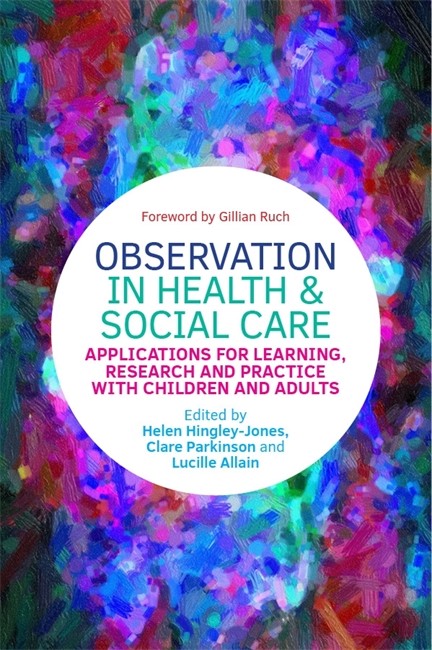Foreword - Gillian Ruch. 1. Introduction. Observation for our times - Clare Parkinson, Lucille Allain and Helen Hingley-Jones. PART I: Observation, Learning and Teaching. 2. From observation, via reflection, to practice: psychoanalytic baby and young child observation and the helping professions - Helen Hingley-Jones. 3. 'To know', 'to do' and 'to be': Learning through observation in medical training, teaching, midwifery and social work - Lucille Allain. 4. 'How does it feel?' Best Interests Assessors observe adult group care - Clare Parkinson. 5. The Sociological Turn- Observations on a broader canvas - Patricia Cartney, Manchester University. PART II: Observation and Practice. 6. Work with troubled adolescents: observation as a key skill for practitioners - Stephen Briggs, University of East London. 7. Observation, attention and awareness: emotional states and bodily clues - Graham Music, Tavistock and Portman Clinics. 8. Applied psychoanalytic observation in practice with younger people affected by dementia - Claire Kent, Tavistock Centre. 9. The use of observation in developing parenting capacity - Duncan McLean and Minna Daum, Anna Freud Centre. PART III: Observation and Research. 10. Soft Eyes: Observation as Research - Andrew Cooper, Tavistock Centre and University of East London. 11. Conclusion - Lucille Allain, Clare Parkinson and Helen Hingley-Jones.
Request Academic Copy
Please copy the ISBN for submitting review copy form
Description
I would recommend this book to a range of audiences, and primarily anyone interested in observation as a method in the realm of health and social care. In more specific terms, I would recommend to practice educators, lecturers and researchers, as the book may be beneficial in terms of refreshing oneself on the value of observation, and also on how to cultivate meaningful and constructive observations and post-observation reflections with students. I would also recommend the book to students and practitioners who want to engage with an articulate but not overly-complicated overview of observational methods in health and social care. Research students interested in observational methods in health and social care will also find this text to be particularly useful. The book examines theory and contemporary practice in a digestible and engaging format, offering fresh observations on observatory methods.

